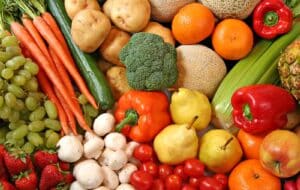
The Value of Vegetables for Elderly People
In addition to being essential for maintaining excellent health, vegetables provide a host of advantages for senior citizens that enhance their quality of life.
- Nutrient Density: Vitamins and minerals that are abundant in vegetables are essential for a number of body processes. They offer nutrients that are critical for immune system support, bone health, and the prevention of chronic diseases, such as vitamin C, potassium, and folate.
- Fiber Content: Many veggies have a lot of fiber, which helps with digestion and supports gut health. In addition, fiber aids in maintaining a healthy weight, preventing constipation, and controlling blood sugar levels.
- Disease Prevention: Eating veggies on a regular basis has been associated with a lower chance of developing chronic illnesses like diabetes, heart disease, and some types of cancer. Vegetables include antioxidants that aid in the body’s fight against oxidative stress and inflammation.
- Hydration: Due to their high water content, vegetables like celery and cucumbers can help seniors stay hydrated. This is especially important for those who might not drink enough water during the day. With in-home care by their side, seniors can find the right mix of how they receive their daily hydration.
Useful Advice to Increase Vegetable Consumption
With the support of in-home care, seniors can get the right amount of nutrients they need each day. Helpful tips to get started are offered below:
- Include Vegetables in Every Meal: Seniors should be urged to eat vegetables at every meal, not just dinner. Including vegetables as snacks, in salads for lunch, or in breakfast omelets can help increase consumption.
- Make it Convenient: Provide pre-cut, freshly washed veggies or go with frozen, easily cooked veggies to streamline the preparation process. As a result, adding veggies to meals may become easier and require less time.
- Try a Variety of Cooking Techniques: With in-home care, seniors can learn new ways to cook vegetables, which might also mean finding the right method to eat one that they might not like any other way. For instance, they may enjoy air-fried cauliflower but not like it steamed.
- Make Appetizing Vegetable Dishes: Dishes that highlight veggies also increase excitement. Things like stir-fries, casseroles, and soups made with vegetables can be tasty and nourishing.
Increasing seniors’ vegetable consumption is a comprehensive way to improve their general health and well-being. With in-home care, seniors can adopt a nutrient-dense diet that will support their longevity, vigor, and improved quality of life by teaching them about the significance of vegetables and helping them put these ideas into practice. Developing a lifelong appreciation for vegetables can lead to long-term health and happiness.
If you or an aging loved one are considering In-Home Care in Burlingame, CA, please contact the caring staff at Aviva In-Home Care today (415) 463-1400
Aviva In-Home Care provides exceptional senior home care in the Bay Area, including San Francisco, Burlingame, San Mateo, Hillsborough, Atherton, Menlo Park, Palo Alto, Berkeley, Lafayette, Orinda, and surrounding areas.
- What You Should Know About Caring For A Parent With Alzheimer’s - May 23, 2025
- How To Help Your Senior Parent Feel Their Best Every Day - May 14, 2025
- Preventing Falls in the Yard - May 6, 2025




